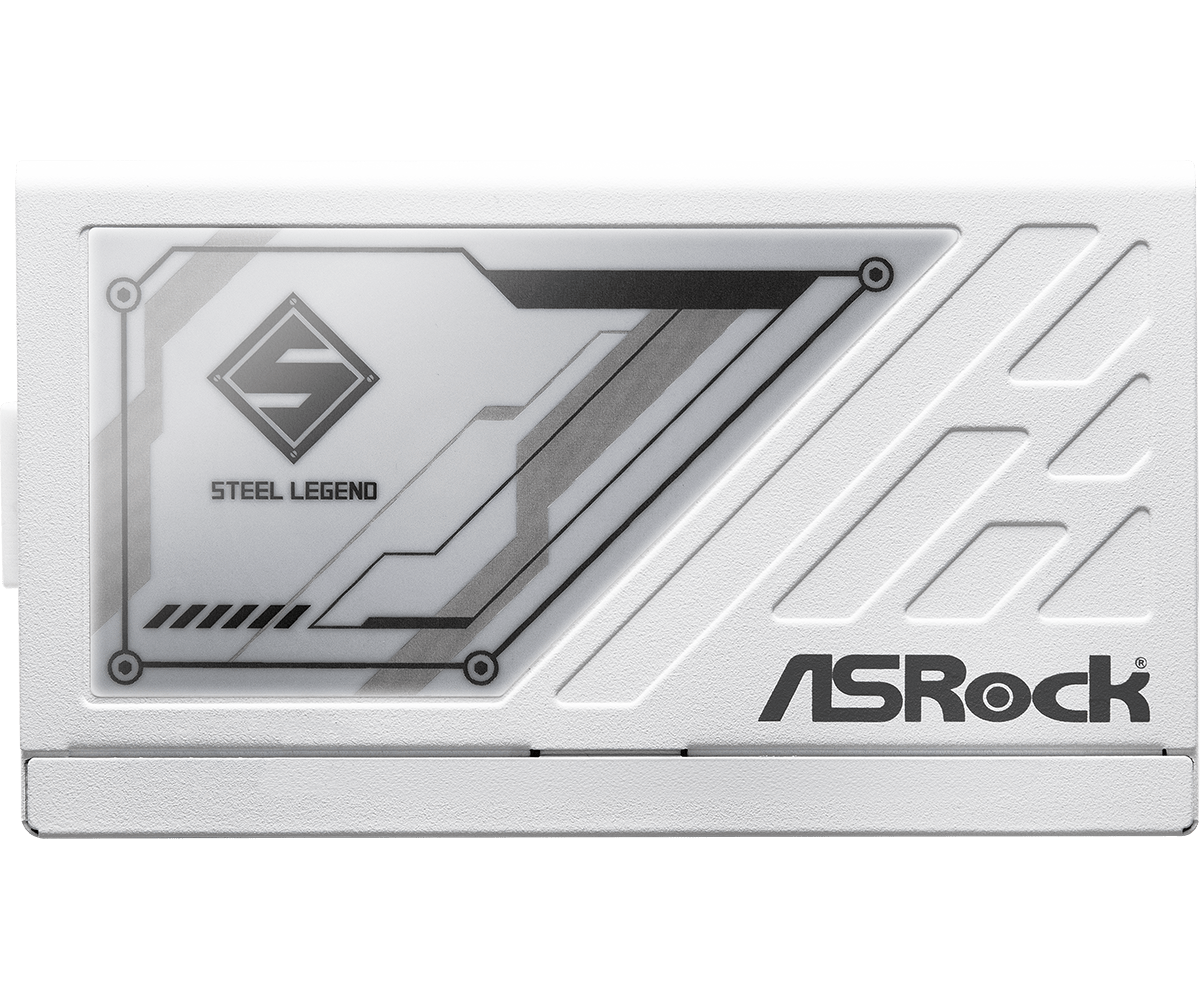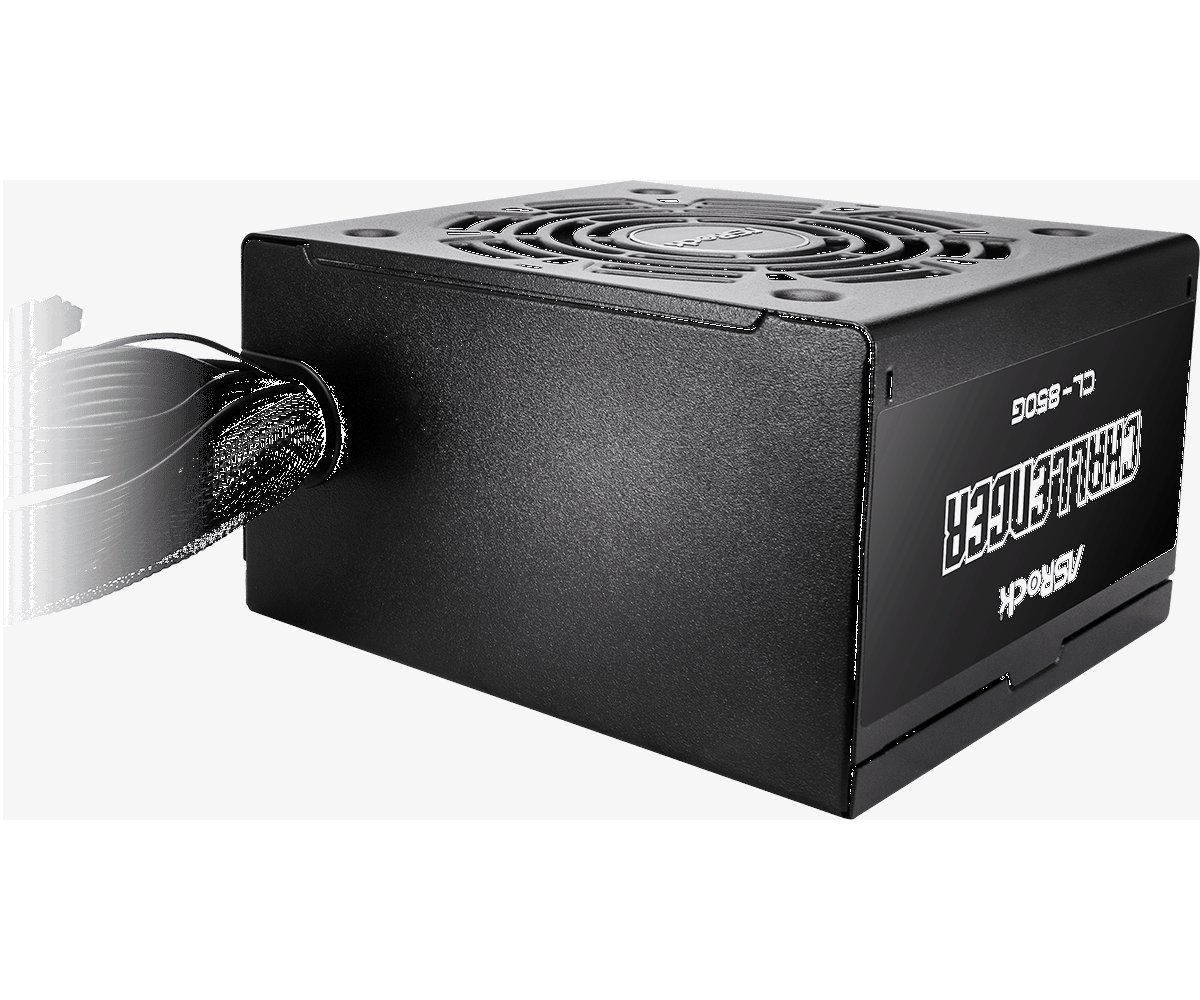ASRock launches almost 20 ATX 3.1 power supplies — capacities from 750W to 1,650W and 80 Plus certifications from… (original) (raw)
ASRock releases new generations of power supplies in different capacities and wattages with varying specifications and features. All except its low-end series use the ATX 3.1 and PCIe 5.1 standards. What's common between all these variants is the inclusion of 12v-2x6 cable—some with two connectors—with dual colors on the connector to give a visual indication of a proper connection like MSI.
There are nineteen power supplies spread over four series: Taichi, Phantom Gaming, Challenger, and Steel Legend. All except one have Cybenetics certification between A+ and A. The Taichi and Phantom Gaming series are the upper-end variants, with Steel Legend being a more mainstream option and labeled as a value series.
The Taichi series appears to be its flagship series, with 80 Plus and Cybenetics Titanium certification along with Cybenetics LAMBDA A+ ultra-quiet certification. For now, two power supplies between 1300W and 1650W have been introduced within this series, all with dual 12v 2x6 connectors and modular cables. These power supplies use Japanese capacitors, Infineon CoolMOS, and SIC SBD and are backed with a 10-year warranty.
Cream of the Crop - Taichi and Phantom Gaming PSU Series
The Phantom Gaming series is marketed towards gamers and offers fully modular 750W, 850W, 1,000W, 1,300W, and 1,600W variations—all with 80 Plus Gold and Cybenetics ratings between platinum and gold and an A rating for acoustics. Like Taichi, these also have a 10-year warranty and 12v-2x6 connectors.
Both these series have a fan control switch behind the PSU. They also have a 5V boost mode switch next to the modular connectors, though ASRock didn't explain the purpose or the situation in which it would need to be manually switched on.
Mainstream and Budget Options - Steel Legend and Challenger PSU Series

(Image credit: ASRock)
ASRock calls its Steel Legend series a more mainstream option with a choice between white and black casings. However, it has 80 Plus Gold and has Cybenetics certification varying between Platinum and Gold with LAMBDA A+, A, and A and acoustic certification between its 650W, 750W, 850W, and 1,000W units. It uses 150mm casing and flat modular cables for cable management. These also use Japanese capacitors and have ten-year warranty coverage.
Harukaze5719 gave more information on these power supplies' Cybenetics scores—Taichi's TC-1650T and TC-1300T scored the highest among their range at over 91 and 90, ASRock Phantom Gaming PG-1600G and PG-1300G scored over 89, and Steel Legend variants in 1,000W and 850W scored over 84, respectively.
Get Tom's Hardware's best news and in-depth reviews, straight to your inbox.

(Image credit: ASRock)
The lower end is the Challenger series, the only one with no Cybenetics certification. It does have either 80 Plus Bronze and 80 Plus Gold certification (differentiated with G and B prefixes in its model number) depending on the unit you choose between 500W (only in bronze), 650W, 750W, and 850W, but with ATX 2.52 specification. These have a five-year warranty and are the only series with non-modular cables. The 24-pin cable is sleeved, while others are flat cables. Both the Steel Legend and Challenger series are advertised to have a 'built-in' 5V boost function.
All these ASRock power supplies provide the 12v-2x6 cables in all of these variants, including the 650W with high-end and high-watt variations with two connectors. We can only speculate if AMD and Intel are also on board with 12v-2x6 connectors on its future releases like Nvidia.
All these power supplies are also bundled with 6+2 PCIe connectors, with its flagship model having up to eight connectors and its budget 550W 80 Plus Bronze-rated non-modular units having up to two connectors. ASRock wanted its power supply available for PC users with different needs. We'll only know how good these power supplies are once they're tested.